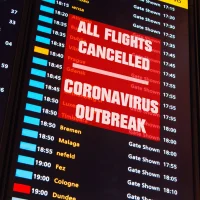Frontline healthcare workers (HCWs) are under great pressure attending to COVID-19 patients. Swamped with large volumes of infected patients, medical staff are also burdened by fears of contracting the disease especially amidst shortages of personal protective equipment, masks and other medical supplies.
It comes as no surprise when UK researchers, after analysing data on mental health problems in HCWs working at pandemic-affected hospitals, point out that post-traumatic stress in particular is common among these hospital workers.
You might also like:How Exposure to SARS-CoV-2 Varies Across Hospital Settings
"There is evidence that HCWs working in pandemics are at increased risk of a range of adverse mental health outcomes, at least in the acute phase," according to the researchers.
A systematic review and meta-analysis, covering 19 studies, was performed by the UK review team, led by researchers from Norwich Medical School at University of East Anglia (Allan et al. 2020). Those studies addressed not just the current COVID-19 crisis, but also other coronavirus outbreaks such as the SARS outbreak in Asia. Prevalence of mental health disorders was assessed ‘a priori’ at different time periods – i.e. during and immediately after a pandemic (acute phase), then over the following months.
The review focussed on common mental health difficulties, such as post-traumatic stress, depression, anxiety or general psychopathology in HCWs caring for COVID-19 patients, "to allow an accurate prevalence of future demand on mental health services and to inform the provision of evidence-based interventions", the review team explained.
Key findings of the systematic review include:
- Post-traumatic stress symptoms (PTSS) and general psychiatric caseness were the most studied outcomes.
- PTSS prevalence estimated at 23.4% in the acute phase and 11.9% in the following 12 months or later.
- For general psychiatric caseness, prevalence estimated at 34.1% (acute phase) and 29.3% (12 months plus).
Based on meta-analyses conducted to determine whether prevalence differed by profession, PTSS prevalence estimate for doctors was 18.7%, while for nurses it was 21.4%. With regard to general psychiatric screening cases, estimates were 31.6% for doctors and 38.2% for nurses.
As noted by the review team, precise estimates of either PTSS and general psychiatric caseness cannot be derived from the reviewed literature due to considerable heterogeneity between studies, arising from methodological differences.
Based on the results of this review, there is urgency for doing research to include more extensive follow-up, in particular using prospective longitudinal cohorts of HCWs. "Research is needed to understand the long-term effects of psychological stress and trauma on HCWs during COVID and how best to support HCWs during and after the pandemic," according to the review team.
Of note, future research should address mental disorders other than PTSS, says the UK team, particularly depression, which has received very limited attention.
Image credit: Juanmonino
via iStock
References:
Allan SM et al. (2020) The prevalence of common and stress-related mental health disorders in healthcare workers based in pandemic-affected hospitals: a rapid systematic review and meta-analysis. European Journal of Psychotraumatology, 11(1), 1810903. DOI: 10.1080/20008198.2020.1810903


![Tuberculosis Diagnostics: The Promise of [18F]FDT PET Imaging Tuberculosis Diagnostics: The Promise of [18F]FDT PET Imaging](https://res.cloudinary.com/healthmanagement-org/image/upload/c_thumb,f_auto,fl_lossy,h_184,q_90,w_500/v1721132076/cw/00127782_cw_image_wi_88cc5f34b1423cec414436d2748b40ce.webp)







